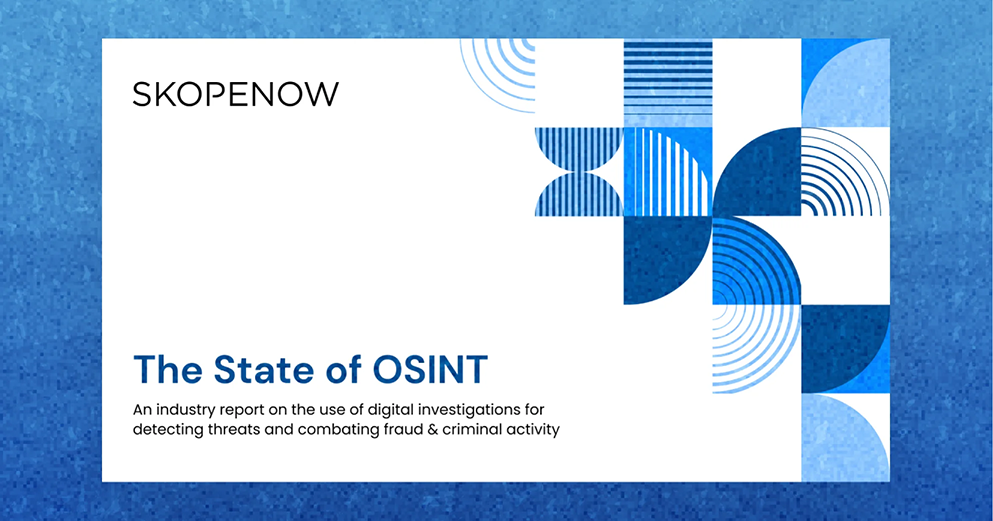April 01, 2025
Accessing Information in Locked-Down Environments: How OSINT Practitioners Navigate Digital Barriers

Steve Adams
Product Marketing Manager
Authoritarian states treat information as a weapon. The U.S. Intelligence Community’s 2025 Annual Threat Assessment highlights how countries like China and Russia are escalating their efforts to control, distort, and restrict the flow of information at home and abroad. These regimes aren’t just blocking platforms, they’re weaponizing content, embedding influence operations into online discourse, and using AI-generated content to stoke confusion and undermine trust.
For OSINT practitioners, these controlled ecosystems represent some of the most difficult—and most essential—environments to investigate. Despite access challenges, OSINT practitioners can still identify valuable publicly available content connected to these regions. The key lies in knowing where to look, how to search, and how to separate manipulated noise from genuine signal.
The Strategic Challenge of Closed Information Ecosystems
In environments such as the Chinese internet, Western platforms are blocked and replaced by localized platforms. Russia’s Runet presents similar hurdles, with limited platform accessibility and increasing pressure on domestic companies to store data locally and limit foreign transparency.
These closed digital ecosystems are designed to restrict the flow of information both internally and externally. This shields authoritarian regimes from scrutiny and distorts the perceptions of citizens and international observers. In fact, the 2025 Annual Threat Assessment warned that China is expanding coercive information campaigns to shape narratives abroad, while Russia blends cyber operations with military action to amplify its global influence.
For investigators outside these borders, this means direct access to local platforms can be difficult and slow, particularly without the appropriate analytical techniques and linguistic context. Additionally, the data may be polluted by state-manipulated narratives. Therefore, OSINT practitioners need specialized tools, linguistic fluency, and strategic workflows to navigate these spaces effectively.
Leveraging Publicly Available Data in Hard-to-Access Places
Despite the challenges, skilled OSINT practitioners can still access valuable public information within closed ecosystems without ever crossing legal or ethical boundaries.
Here are several key approaches:
1. Use of Native-Language Search and Native Platforms
Western search engines often fall short for tasks in these locales. Using native-language keywords on local platforms, paired with cultural fluency or translation support, opens access to news, user posts, and local sentiment. This approach demands extra care in source validation due to potential platform bias.
2. Archived Data and Cross-Platform Discovery
Even when real-time access is blocked, many regional posts or discussions are mirrored on other global platforms, archived in forums, or cited in open news sources. Posts, screenshots, and discussions from regional channels may surface on Western platforms, even when the primary source disappears.
3. Multilingual Search Techniques
Even in restricted environments, individuals often develop indirect or coded ways to communicate online. By searching transliterated names, slang, or emojis common in online communities (such as the coded language used in human trafficking), OSINT practitioners can surface obscured posts that transcend borders. Tools that use entity resolution and multi-language search can assist in discovering connections across transliterations and pseudonyms.
4. OSINT from the Outside In
When internal access is blocked, external signals become crucial for oppressed citizens. Flight and maritime traffic data, satellite imagery, and even livestreams from public cameras can provide insight into logistics, infrastructure, and major events without needing to access domestic networks directly.
5. Dark Web and Alternative Forums
Discussions and data originating from controlled regions may surface on decentralized or anonymous forums, where it is shared by dissidents, whistleblowers, or others seeking external visibility. While navigation and attribution remain complex, these forums can provide indirect access to data originating from inside controlled regions.
Strategic OSINT in the Age of Global Influence Campaigns
With the right strategy, even the most restricted environments can yield valuable insights that support informed decisions and help protect people, assets, and operations. However, access to these environments alone is not enough for intelligence professionals.
The 2025 Annual Threat Assessment makes clear that the battle for information is no longer confined to domestic networks. China and Russia actively engage in AI-powered influence operations, including the use of deepfakes, synthetic personas, and coordinated botnets. In this environment, OSINT is a strategic function.
Investigating across borders doesn’t require bypassing barriers—it requires understanding them and working within legal and ethical limits. The future of OSINT will depend on credibility, context, and discernment. Knowing what’s being shown (and what’s being hidden) means recognizing when content is manufactured, when sources are compromised, and when patterns don’t fit.
How Skopenow Supports Ethical Access to Global OSINT
At Skopenow, we believe that access to publicly available data should be both responsible and lawful. Our platform empowers investigators with the ability to surface insights from difficult environments without resorting to intrusive tactics or circumventing digital restrictions through illicit means.
With solutions like Workbench for deep people and business analysis, Grid for real-time alerting, and Link Analysis for understanding digital connections, investigators can operate confidently in information-scarce spaces. These tools help practitioners filter noise, flag risk, and make sense of complex, adversarial data landscapes.
Join over 1,500 organizations—including 50+ U.S. government agencies—that rely on Skopenow to collect and analyze publicly available information at scale. Learn more and schedule a personalized demo today at www.skopenow.com/try.


